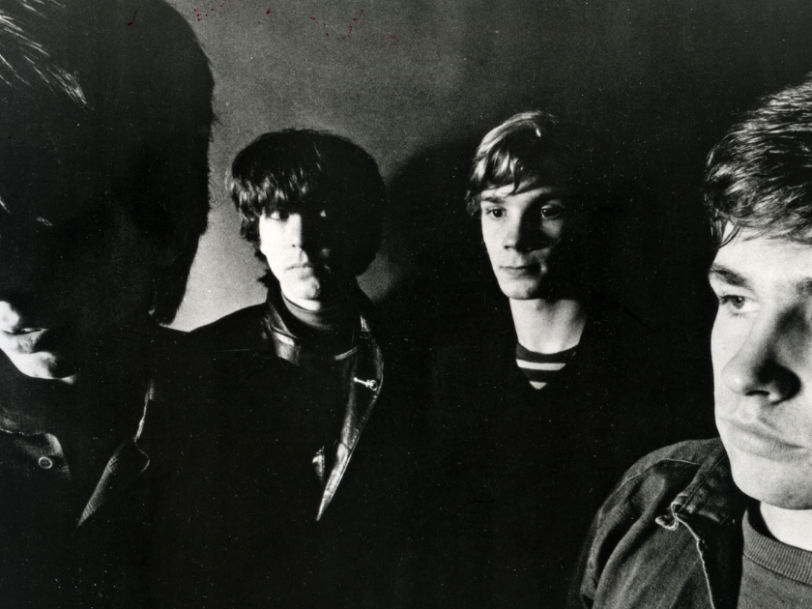“The run of singles from that album… were staggering,” lifelong Bunnymen fan and Manic Street Preachers bassist/lyricist Nicky Wire said in a 2018 interview with Cardiff Times. “For me, Silver connected so perfectly – the flow of words is real poetry. It’s the track that made me realise there was a deep, ice-cold mystery to [McCulloch’s] words… Here was someone writing words for music that had a natural poetic rhythm to them. No one else was doing that at the time – arguably, not many have managed it since, either.”
The release and legacy: “It captured a great band at a perfect moment”
Completing an already heady package, Ocean Rain came housed in a sleeve that matched the elegance of the music within. Continuing the elemental theme that had seen The Bunnymen pose in the ice and snow at Iceland’s Gullfoss waterfall for the cover of Porcupine, Brian Griffin, who had shot all the Bunnymen covers to date, chose to photograph the group in Cornwall’s Carnglaze Caverns. In this otherworldly location, the four musicians discovered an abandoned rowing boat perfect for such a session, allowing Griffin to frame Ocean Rain’s iconic cover and create – as band biographer Chris Adams later wrote – “a perfect visual representation of arguably The Bunnymen’s finest album”.
The wider public needed little convincing that Ocean Rain was, indeed, a force of nature. When it was first released, on 4 May 1984, the album shot to No.4 in the UK during an impressive 26-week run on the charts, during which it received a gold certification. In fact, with hindsight, it’s surprising to discover that Ocean Rain was initially greeted with some relatively lukewarm reviews. However, it’s more than regained any lost ground in recent years, with countless retrospectives offering effusive praise – quite often from fellow musicians responsible for landmark releases of their own.
“Ocean Rain stood out for me as a unique and special album the first time I heard it,” ex-Bunnymen producer and The Lightning Seeds’ frontman Ian Broudie enthused in the Liverpool Echo. “It captured a great band at the perfect moment and has a lasting, timeless quality which still reverberates in every song.”




